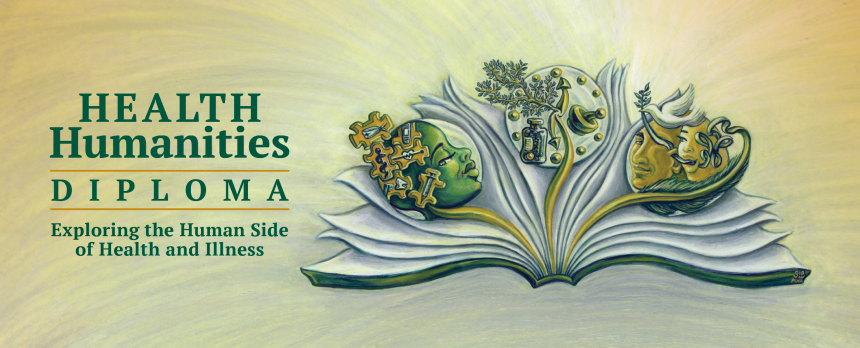
Events

Why Health Humanities?
As the Covid-19 pandemic has revealed, training in humanities-based thinking and methodologies is vital both for policy-development and health-related communications. Being able to contextualize the present through lessons of the past, to consider the ethics of one’s strategies, to form strong arguments, to communicate clearly, and to inspire trust are skills that can help both health clinicians and public health practitioners to serve the public and, more broadly, can ease social discord and save lives. Furthermore, post-graduate programs in health-related disciplines, including medical school, increasingly expect candidates to show facility with humanities-related skills (including those related to effective reasoning and communication, narrative interpretation, and ethics).
Hosted at St. Jerome’s University, and offered in conjunction with the University of Waterloo, the Health Humanities diploma offers current undergraduate students and non-degree/post-degree community members, health clinicians, and public health practitioners a means of developing these competencies, so that they can grow as responsible leaders able to respond holistically to health-related questions and to guide and nurture action. The program enables students to distinguish themselves by providing them with a credential to showcase their training in humanities related to health. As a diploma, the program requires a relatively small number of courses (5), making it accessible to both current undergraduates and non-degree or post-degree students.
Courses offered this year (2024-2025):
|
Fall 2024
Spring 2025
|
Winter 2025
|
Click on the links below to find out more about the Health Humanities diploma, and to explore whether it might be for you.
Access the Health Humanities Blog here.
Congratulations to 2024 graduate Avery Beavers for achieving the highest academic achievement in Health Humanities


